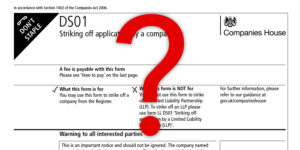Once a limited company has been incorporated in one of the UK’s three jurisdictions (England & Wales, Scotland, or Northern Ireland), the company will remain registered there for as long as it exists. This means that you cannot change which country your UK limited company is registered in. However, there are ways that you can move the business to a different country, which we will discuss throughout this blog.
Moving your UK company to a different country
The only way to officially move your company’s registration to another country is to dissolve it and incorporate a new company in the preferred jurisdiction. When your new company is set up, you can transfer your business assets from the existing company.
Alternatively, you could register another company in your preferred country and use your existing company name. This is permitted because both companies will be part of the same ‘group’. These processes, however, can be time-consuming and costly.
The good news is that you don’t have to do either of these things to trade through your existing UK limited company in another part of the UK or a foreign country. You can base your business operations wherever you like. In fact, your company can trade in multiple locations around the world.
This is particularly common with large corporations running overseas branches of shops, hotels, and offices. Taking this approach is useful if you want to move to a different country without having to give up an established business and extensive client base, or if you’d rather avoid the hassle of incorporating a completely new company.
Moving business activities to a different part of the UK
Basing some or all of your company’s activities in a different part of the UK is not as complicated as moving yourself and your business activities overseas. Your company profits and personal income will continue to be taxed under the same UK tax regimes. However, be aware that you may pay different rates of Income Tax since each UK country sets its own rates.
If your UK limited company is registered in England and Wales, for example, and you want to relocate to Scotland or Northern Ireland, you can move your business activities with you. You simply need to maintain a registered office address in England or Wales.
Your company will still be registered in England & Wales and you can continue to trade there if you want. Statutory mail will be delivered to your registered office in England or Wales, and any legal matters relating to your company will be dealt with by the courts in England & Wales. You and your company will still be taxed in exactly the same way.
Should I set up a new business address?
You should set up a business address in whichever part of the UK you move to. This will enable you to establish a geographical presence, build relationships with new clients and contacts, and provide a suitable address for accepting returns, invoices, and other important correspondence.
If you have existing business addresses in other parts of the UK, you should consider keeping them for mailing purposes, especially if your company is well-established in these places. This will provide a sense of security and professional continuity to existing clients and contacts with whom you’ve built strong relationships.
- Not a UK resident? Form a UK company with business banking
- Business bank accounts for non-UK residents
- Can a Scottish company be moved to England?
Depending on the types of products or services you provide, you may not have to lose your existing customers, so this could be an effective and affordable way to maintain stability if you decide to move. Just make sure you can get your mail forwarded from your current business address to the new one.
Why can I not move my registered office to a different country?
Companies House incorporates limited companies in three separate jurisdictions in the UK, rather than just the ‘whole of the UK’. England and Wales (although two separate countries) are both subject to English Law. This means that they form a single jurisdiction, with litigation being dealt with through the same courts.
Scotland and Northern Ireland are completely separate countries that, along with England and Wales, form the United Kingdom of Great Britain and Northern Ireland. Both countries have separate legal systems and courts – Scotland is subject to Scots Law, and Northern Ireland is subject to Northern Irish Law.
As a result of the UK’s somewhat complex configuration and various legal structures, the jurisdiction in which you choose to register a company will forever dictate the location of your registered office.
- Companies registered in England and Wales must maintain a registered office in England or Wales
- Companies incorporated in Scotland must maintain a registered office in Scotland
- Companies in Northern Ireland must maintain a registered office in Northern Ireland
The location of your registered office will not affect your trading activities in any way. Registered office rules apply to all sizes of incorporated businesses, even multinational companies with branches all over the world. If you want to trade in different parts of the UK or overseas, you can easily set up a business address wherever you would like to establish a presence or be contacted by clients and other third parties.
Changing an English and Welsh company to a Welsh company, or vice versa
A limited company registered in England and Wales can have its registered office address in either country, and it can switch the situation of its registered office from one to the other whenever it wishes. This is because England and Wales are regulated by a single legal system.
It is also possible to change an English and Welsh company to a “Welsh company“, as long as its registered office is situated in Wales. Conversely, you can change a company registered only in Wales to one registered in England and Wales. To make either one of these changes, the following steps are necessary:
- the company shareholders must pass a special resolution approving the change
- the company director must complete Companies House form AD05: ‘Notice to change the situation of an English and Wales company or a Wales company’
- a copy of the resolution and form AD05 must be delivered to Companies House within 15 days of the resolution being passed
- if you also need to change the situation of your registered office, the director will have to complete Companies House form AD01 ‘Change of registered office address’ and deliver it to Companies House at the same time.
The names of companies registered in England & Wales, Scotland, and Northern Ireland must include ‘Limited’ or ‘LTD’ at the end. However, Welsh companies can choose to add ‘Cyfyngedig’ or ‘CYF’ to the end of their names. If you need to make any such amendments, you must file Companies House form NM01 ‘Notice of change of name by special resolution’ before changing the situation of your company.
If you need to make any changes to the details of your UK limited company or file information at Companies House, you can use 1st Formations’ free Online Company Manager. All information delivered via this software filing system is safe and secure.
Tax treatment of a UK limited company trading overseas
An overseas branch of a UK limited company is effectively an extension of UK trade, so there will be a number of tax implications when you start trading outside of the UK:
- UK-registered companies are subject to Corporation Tax on all profits and chargeable gains from the UK and abroad.
- Overseas activities may give rise to a taxable presence in that country if you have a fixed place of business there, or if you are negotiating and concluding contracts in an overseas country where you permanently reside. In such instances, your company will have to be registered with an overseas tax authority.
- Double taxation relief is given when profits from overseas activities are taxed both in the UK and abroad.
- Double taxation relief is restricted to the amount of UK tax on your overseas profits.
- Trading losses from overseas activities can be relieved against UK profits.
- UK capital allowances are available in respect of any plant and machinery purchased overseas.
Tax treatment of non-UK resident directors and shareholders
If you permanently live outside the UK (183 days or more in a tax year), there will be personal tax implications for the income you receive through your UK limited company:
- As a company director, you will still be ‘employed’ in the UK because your company is registered in the UK.
- You will have to pay personal tax in the UK for income received from any time spent working in the UK (this includes attending just one board meeting). However, you may still be eligible for the tax-free Personal Allowance of £12,570.
- If you are required to pay personal tax and National Insurance in the UK, your company will have to remain registered for PAYE.
- You may have to pay National Insurance contributions on UK income.
- Your country of permanent residence may tax you on your UK income, but you will be able to claim tax relief if that country has a ‘double taxation agreement’ with the UK.
- You won’t pay UK tax on dividend income you receive (unless ‘split-year treatment’ applies), other than the Corporation Tax that is deducted from company profits before dividend income is distributed.
- You will still have to report your dividend income on a Self Assessment tax return if you are liable to Income Tax in the UK, though you won’t be taxed on it.
Am I a UK resident or non-UK resident?
Your UK residential status usually depends on the number of days you spend in the UK during the tax year, which runs from 6th April in one year to 5th April the following year. You will only be classed as resident in the UK if both of the following apply:
- you meet at least one of the automatic UK tests or the sufficient ties test
- you don’t meet any of the automatic overseas tests
Where these do not apply, you are non-resident in the UK for tax purposes.
The UK tests
Under the automatic UK tests, you may be classed as resident if:
- you spend 183 days or more in the UK during the tax year
- your only home is in the UK (you must own, rent, or live in that property for a minimum of 91 days in total) and you spend a minimum of 30 days there in the tax year
- you work in the UK full-time for any period of 365 days, and at least one of those days was in the tax year that you’re checking
Additionally, you may be resident under the sufficient ties test if you spend a number of days here and you have additional ties to the UK (e.g. work or family).
The overseas tests
You will normally be non-resident under the overseas tests if:
- you spend fewer than 16 days per tax year in the UK, or 46 days if you’ve not been a UK resident for the past three tax years
- you work abroad on a full-time basis (an average of 35 hours per week) and spend fewer than 91 days per tax year in the UK, of which no more than 30 are spent working
When you first move in or out of the UK, you may be subject to split-year treatment. Where this applies, one part of the tax year will be ‘non-resident’ and the other part will be ‘resident’. You will only be liable to UK tax on foreign income based on the time you live in the UK during the tax year. This will apply automatically through PAYE or when you file your Self Assessment tax return.
Thanks for reading
There are many options available to you if you’re hoping to move your company to a different part of the UK or overseas. Before taking any steps, you should seek professional advice from an accountant or solicitor.
Explore the 1st Formations Blog for more company guidance and small business advice.
Please note that the information provided in this article is for general informational purposes only and does not constitute legal, tax, or professional advice. While our aim is that the content is accurate and up to date, it should not be relied upon as a substitute for tailored advice from qualified professionals. We strongly recommend that you seek independent legal and tax advice specific to your circumstances before acting on any information contained in this article. We accept no responsibility or liability for any loss or damage that may result from your reliance on the information provided in this article. Use of the information contained in this article is entirely at your own risk.










Join The Discussion
Comments (21)
Hello,
As a resident of the United Kingdom, I desire to open a limited company that will be able to conduct business both in the United Kingdom and overseas, such as Hong Kong. What should I consider when setting up my business? Should I open a separate company in Hong Kong with a separate name, business account, etc.?
OR
To avoid double taxation, should I establish a UK limited company with a parent company and 100% subsidiary holding?
Could you please let me know what you think?
Thank you for your kind enquiry, Jiyesh.
Unfortunately we are unable to advise on the most efficient method of running businesses in the UK and Hong Kong, as we are not experts on Hong Kong tax. It should be noted that the UK has a tax treaty with Hong Kong for the purposes of avoiding double taxation in different areas. We would advise you look at the tax treaty, which can be found here: https://www.gov.uk/government/publications/hong-kong-tax-treaties
This tax treaty may enable you to register your company in the UK only, and still operate in Hong Kong, or vice versa.
For the best advice on tax efficiency between these two jurisdictions, we would recommend you seek professional advice from a tax accountant.
We trust this information is of use to you.
Kind regards,
The 1st Formations Team
Hello,
This is a fantastic article, I really appreciate you taking the time to write it to educate us on this matter.
I was wondering how I could move all my business assets (ie. Money in business bank account) from my UK limited company to my Canadian corp?
Regards,
Fabian
Thank you for your kind enquiry, Fabian.
With regards to moving assets, we would need to know more information – such as whether any of that money was designated as VAT, and what industry you were in. We would suggest you seek professional advice from an accountant before carrying out such a transaction – however, in theory, there should not be a major problem for you transferring all business assets to a Canadian company from a UK one.
I hope this information is of use to you.
Regards,
John
We have a UK Ltd company that I would like to also set up in Northern Ireland. Would this have to be a branch of the UK company as I don’t want to move it, I want to add the possibility of trading in and from NIreland.
Hi Debbie
Thank you for your message.
You can either set up a branch or set up a separate company in Northern Ireland if you would like to keep the trading separate. It might be worth getting advice from your accountant to find out what would be best for you.
Best regards,
1st Formations team
Sir
Excellent article.
Quick question: in order to minimise my tax obligations from my private practice, I want to form a limited company, register it in Gibraltar, so my private practice medical income is paid to the company.
Is this feasible?
How much would I benefit re tax
Is it worth the hassle?
Thanks in advance.
Thank you for your kind enquiry, Jay.
Unfortunately we are not tax experts, and we also do not have much knowledge of the jurisdiction of Gibraltar.
We would recommend you contact a tax professional for advice on your request.
We are sorry we are unable to be of more assistance.
Kind regards,
The 1st Formations Team
hi, if a company is registered in the uk but has subcontractors / consultants in another country which legal duristiction would the law fall under contractually UK or the country where the workers /work is taking place ?
Hi Chris
Thank you for your message. This is a legal question and we are not professional advisors so cannot help. I would suggest you speak to a solicitor for advice on this matter.
Best Regards,
1st Formations Team
“The first £5,000 of dividend income will be tax-free, other than the 20% Corporation Tax that is deducted from company profits before dividend income is distributed. Above that amount, you will pay dividend tax on any dividend income received in the same year.”
Where is that dividend tax paid? In the UK or in the country in which you are tax resident? I am now living and working outside of the UK, my UK company has a large cash pile. Can I pay this out in dividends free from any further UK tax (beyond the Corp Tax already paid)?
Am I right in understanding I would still need to declare it on my UK self-assessment? Is there any restriction on bringing the money back into the UK at some later date?
Dear Chris,
Unfortunately we are not taxation experts so cannot advise you on this. I would suggest you seek the advice of an accountant before making any decisions on how to extract monies from your UK company.
Best regards,
Rapid Formations Team
hey there
I have my registered company in Scotland because I was living there previously. But for the past few years I have been settled in England. Although I used a company for registered address in Scotland but due to the financial situation of my company it is getting expensive to maintain. I am thinking to move my company to my England address. Can you give me an advice on that
Dear Kiran,
Unfortunately a company registered in one of the UK’s 3 jurisdictions (England and Wales are 1 and then Northern Ireland and Scotland are separate jurisdictions) must always remain there so to keep the company live the Registered Office will have to remain in Scotland.
Best regards,
Rapid Formations Team
This was SO helpful thank you! I know that I will face some complications by moving abroad, but the fact that the business can stay UK based is really great. Thanks for getting all this info so clear and accessible, great post!
Hi Lucy I am also thinking of moving my entire publishing company to Malta. The corp tax looks amazing and all my clients are in the EU. How are you getting on?
Are there any implications doing the opposite?
Setting up a company abroad (that would work better tax-wise) but trading in the UK? Let’s say that company is an online platform, ie: airbnb?
Dear Chryso
Thanks for your message.
The decision on where would be best to base your company would be your decision. You would look at where the actual trade of the company is taking place and the various legislative rules in each country and decide from there. I would advise speaking to an accountant if you are unsure which country your company should be registered in.
Kind regards
Thank you for this article, it’s been very useful.
I’m considering moving to Malta and currently have a UK based company. All of my business activity will be conducted via the UK (i.e. with UK clients) and all monies received in will be in GBP to a UK bank account. However, I won’t need to attend the UK for any business activity and will work remotely in Malta. The thing I’m struggling to find an answer to is that I’m aware my business will pay corporation tax in the UK, but where will I be liable for my personal tax payments, in the UK or Malta?
Thank you
Hi there thank you for this informative article!
I am relocating to Jersey and have a c.i.c. registered in England. I would like to continue running the C.I.C. but now in my new location on the Channel Island. The registered office address can remain the same but it won’t be in use. Is this OK? I won’t be earning enough to pay any tax.
Thank you for your help
Thank you for your kind enquiry, Hannah.
In general terms, directors of a limited company are not required to reside in the UK. This also applies to C.I.C companies. However, this would depend on the articles of association of the CIC, and that no restriction was placed within it with regards to the director of the company.
With regards to moving the C.I.C to Jersey from the UK, it is not possible to change the jurisdiction of a C.I.C or any limited company. You would have to form a new company using Jersey’s company laws.
We trust this information is of use to you.
Kind regards,
The 1st Formations Team